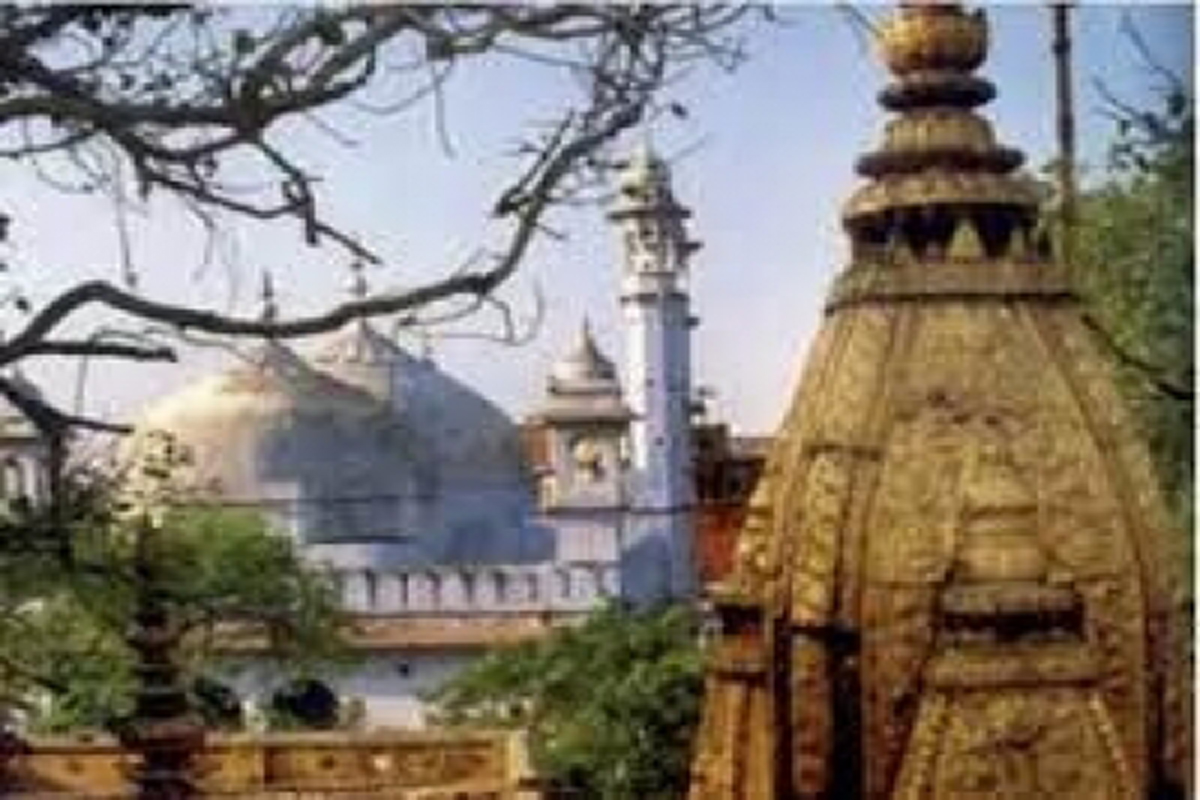HC orders Telangana govt to conduct local body polls by Sep 30
The court’s timeline includes 30 days for the state government to prepare the list of voters and notify the reservations, and another 60 days for the SEC to conduct the elections.
Varanasi District Magistrate S Rajalingam assured all possible help to the ASI to comply with the court order.
Statesman News Service | Varanasi/ Prayagraj | August 3, 2023 4:30 pm

Photo: IANS
After the Allahabad High Court permitted the Archaeological Survey of India (ASI) to conduct the survey of the Gyanvapi mosque complex, the proposed survey, which was stopped by the Supreme court on July 25, will restart on Friday morning.
On July 21, Varanasi District Judge A K Vishwesh ordered the ASI to conduct the survey of Gyanvapi and submit its report by August 4.
Advertisement
The Supreme Court had stayed the survey for two days on July 24 when the ASI commenced its survey and asked the mosque committee to approach the Allahabad High Court. After this, the Muslim side approached the high court against the survey, but their plea has been rejected.
Advertisement
Varanasi District Magistrate S Rajalingam said on Thursday that the ASI had sought help from the district administration to start the survey of the Gyanvapi mosque complex from tomorrow. “We will extend all possible help to them to comply with the court order,” he said with an assurance of tight security cover during the process.
Before the Supreme Court stay on July 24, the survey of the place of namaz was done in just five hours. Four teams of the ASI measured the entire complex. Photography and videography also took place during this period. All four sides were measured. Now, after the order of the Allahabad High Court, the ASI team will restart the survey.
On the orders of the court, the ASI team will survey the mosque premises. However, the ASI will not survey the location where the Shivling was claimed to have been found. Hindu side’s lawyer Vishnu Hari Jain said that ground penetrating radar and modern technology will be used in this survey.
The director of the ASI has been directed to conduct a detailed scientific investigation using Ground Penetrating Radar (GPR) survey, excavation, dating method and other modern techniques of the present structure. A scientific survey of the Gyanvapi mosque complex by the ASI will ascertain whether the present structure was built over a pre-existing structure of a Hindu temple. ASI will conduct Ground Penetrating Radar (GPR) survey just below the three domes of the structure and if required, excavation can also be done.
The ASI will investigate the age and nature of construction of the western wall of the building through scientific methods. The order also mentions conducting GPR survey under the ground of all the basements and digging if necessary. The ASI will prepare an inventory of all artifacts found in the structure, ascertain their contents and carry out scientific examination and dating to ascertain the age and nature of construction.
However, the order said that the ASI director should ensure that the structure standing on the disputed land does not suffer any damage and remains intact.
Regarding the Gyanvapi dispute, the Hindu side claims that below it is a self-manifested Jyotirlinga of 100 feet high Adi Vishweshwar. Kashi Vishwanath Temple was built about 2050 years ago by Maharaja Vikramaditya.
It is claimed that the Mughal emperor Aurangzeb built a mosque here by demolishing the temple in the year 1664. Which is now known as Gyanvapi Masjid.
The petitioner had demanded that an archaeological survey of the Gyanvapi complex be carried out to ascertain whether the underground portion is the remains of the temple or not.
On the other hand, a public interest litigation(PIL) has been filed in the Allahabad High Court on Wednesday regarding the Gyanvapi case. In this, a demand has been made to allow regular worship of Shringar Gauri. However, the matter is already pending in the Varanasi court.
In the PIL, an appeal has been made to the High Court to protect the symbols of Hindus found in the Gyanvapi campus and to ban the entry of non-Hindus. It has been said in the PIL that entry of non-Hindus in the campus should be banned till the Varanasi court’s verdict in the Shringar Gauri case.
It has also been demanded from the court that such arrangements should be made so that the work of ASI survey in Gyanvapi is not affected. The hearing on this petition is expected to be held next week in the Chief Justice’s bench.
Advertisement
The court’s timeline includes 30 days for the state government to prepare the list of voters and notify the reservations, and another 60 days for the SEC to conduct the elections.
Terming the high court’s decision "painful" and "disappointing," Sarma stated that the ruling undermines the state government’s current drive for clean and merit-based recruitment in the civil services.
In a nationwide grand celebration of International Day for Yoga, 81 heritage sites under the aegis of the Archaeological Survey of India (ASI) hosted vibrant yoga sessions, organized in collaboration with the Ministry of Ayush on Saturday.
Advertisement
